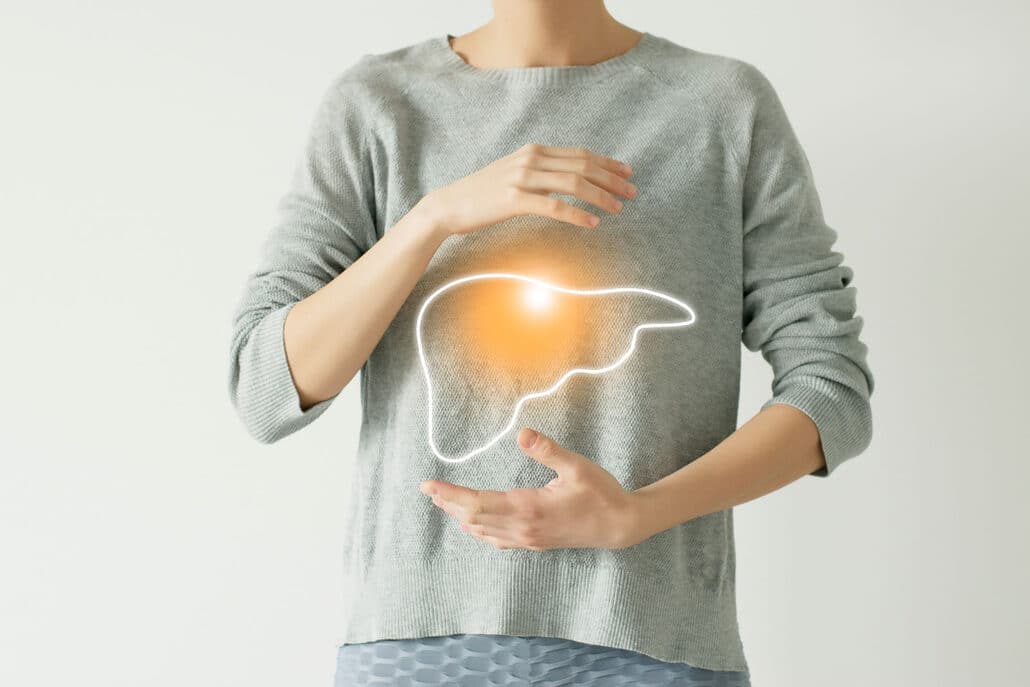Imagine hiding your addiction from your loved ones, pretending everything is okay. However, you know that you’re spiraling out of control. For millions of individuals struggling with alcohol addiction, this is a reality. They may feel like there is no hope.
With the right treatment, support, and mindset, recovery is possible. You can take control by learning the essential components of alcohol treatment, evidence-based behavioral therapies, pharmacotherapy options, support groups, and aftercare. With this information, you can tailor alcohol addiction treatments to your needs. Whether you or someone you know is struggling with alcohol addiction, discover how to overcome this challenging disease and embrace a brighter future.

Table of Contents
- 1 Alcohol Addiction Is a Prevalent Problem
- 2 How Comprehensive Alcohol Treatment Can Help
- 3 The Essential Components of Alcohol Treatment
- 4 Do Evidence-Based Behavioral Therapies Help?
- 5 Are There Pharmacotherapy Options Available?
- 6 Support Groups and Aftercare
- 7 Tailor Treatment to Your Needs
- 8 This Is the Time to Seek Help and Embrace Your Recovery
Alcohol Addiction Is a Prevalent Problem
Alcohol addiction is a significant public health concern in the United States. According to the National Center for Drug Abuse Statistics, 140,557 Americans die from the effects of alcohol per year. Alcohol addiction can affect individuals of any age, gender, or background, causing problems for them and their families.
How Comprehensive Alcohol Treatment Can Help
Many individuals struggle with alcohol addiction but do not know where to turn for help. Comprehensive alcohol treatment helps individuals recover from addiction and achieve lasting sobriety. This type of treatment takes a compassionate and understanding approach that considers the individual’s unique needs and circumstances. These options involve a range of evidence-based treatments, including:
- Alcohol detox
- Behavioral therapy
- Pharmacotherapy
- Support groups
- Aftercare
With this type of treatment plan, healthcare professionals can take a more sympathetic approach to help those with addiction issues. As a result, those who are struggling with alcohol dependence feel heard and understood, which is essential to building a strong therapeutic relationship and promoting successful recovery. Additionally, these treatment plans emphasize the importance of treating addiction as a whole-person issue instead of seeing it as a moral or willpower failure on the individual’s part. If you need help with your alcohol dependency, consider these factors for your treatment options.
The Essential Components of Alcohol Treatment
Alcohol addiction is a complex and challenging disease that requires a comprehensive and compassionate approach to treatment. Here are some components of alcohol treatment that can help you recover from addiction:
Alcohol Detox
Alcohol detox is a critical component of treatment that helps individuals safely and comfortably withdraw from alcohol. Detox can be a challenging and uncomfortable process, which can lead to alcohol withdrawal syndrome. With that in mind, detox should always be completed under the care of a trained medical professional. By detoxing from alcohol, the person can take the next steps for additional treatment.

Behavioral Therapy
Behavioral therapy is a critical component of treatment for alcohol addiction. These therapies can help individuals identify and change negative thoughts and behaviors that contribute to their addiction. Many of these treatment plans offer a supportive and understanding environment where individuals can develop new coping skills and strategies to manage their addiction.
Pharmacotherapy
Pharmacotherapy can be an effective component of treatment for alcohol addiction. Medications can help individuals manage withdrawal symptoms and reduce cravings, making it easier to maintain sobriety. Once again, these medications should be prescribed and monitored by healthcare professionals. Many times, these medications are used in combination with other treatment methods.
Support Groups and Aftercare
Support groups and aftercare are essential components of treatment that can help individuals maintain sobriety over the long term. These groups provide a supportive and understanding environment where individuals can connect with others who are going through similar experiences. Aftercare programs also include ongoing individual and group therapy to help individuals stay on track with their recovery goals and develop healthy coping skills.
By incorporating these components of alcohol treatment, you can receive the compassionate care needed to overcome addiction and achieve lasting sobriety.

Do Evidence-Based Behavioral Therapies Help?
Behavioral therapies are a key component of treatment that can help with your alcohol addiction. Some evidence-based behavioral therapies include:
Cognitive Behavioral Therapy (CBT)
Cognitive behavioral therapy (CBT) is a type of therapy that focuses on changing negative thoughts and behaviors. Individuals participating in CBT develop new coping skills and strategies to manage their addiction. This compassionate approach emphasizes the importance of personal growth and positive change.
Motivational Interviewing (MI)
Motivational interviewing (MI) is a collaborative therapy approach that helps individuals identify the reasons they may be ambivalent about their addiction. With this therapy, individuals can discover their motivation so that they can work towards their recovery goals.
Dialectical Behavior Therapy (DBT)
Dialectical behavior therapy (DBT) emphasizes mindfulness, emotional regulation, and interpersonal skills. DBT can help individuals learn new coping skills and strategies to manage intense emotions that may contribute to their addiction.
Family Therapy
Family therapy can be a crucial component of recovery for individuals struggling with alcohol addiction. This type of therapy allows the individual and their loved ones to understand how addiction affects the family system. Along with that, everyone can learn healthy communication and coping skills to support each other.
With the assistance of evidence-based behavioral therapies, individuals can receive effective and personalized care. Behavioral therapies offer a supportive and collaborative environment where individuals can develop new coping skills and strategies to manage their addiction and work towards a healthy, fulfilling life in sobriety.

Are There Pharmacotherapy Options Available?
You may often want to pair your chosen behavioral therapy with pharmaceutical options. Here is a brief look at the most common medications that are used to treat alcohol addiction:
Disulfiram (Antabuse)
Disulfiram, marketed under the brand name Antabuse, is a medication that can help individuals with alcoholism to stop drinking. When taken as prescribed, it causes unpleasant side effects when alcohol is consumed. While this may sound harsh, it is meant to help individuals overcome their addiction by creating a strong negative association with alcohol.
Naltrexone (ReVia, Vivitrol)
Naltrexone is a medication used to treat alcohol and opioid addiction. It reduces cravings for alcohol and opioids. This medication is available as an oral tablet (ReVia) or an extended-release injectable (Vivitrol). When used as part of an alcohol addiction treatment plan, naltrexone can improve overall treatment outcomes and reduce the likelihood of relapse. Patients taking naltrexone must be carefully monitored by their healthcare provider and should not use opioids or other medications that interact with it.
Acamprosate (Campral)
Acamprosate is a medication that helps to reduce cravings and prevent relapse in individuals with alcohol dependence. It works by restoring the balance of certain brain chemicals disrupted by chronic alcohol use, helping to reduce unpleasant symptoms of alcohol withdrawal. Acamprosate is typically taken daily as a tablet and is generally well-tolerated with few side effects. When used in combination with counseling and support groups, it can improve overall treatment outcomes and reduce the likelihood of relapse.
These medications can help patients achieve and maintain sobriety when used with counseling and support groups. You should discuss the risks and benefits of these medications with your healthcare provider to determine the most appropriate treatment plan for your individual needs.

Support Groups and Aftercare
Recovering from alcohol addiction can be challenging, but support groups and aftercare can provide a crucial source of comfort and guidance. You may want to consider joining these groups to help you achieve and maintain sobriety.
Alcoholics Anonymous (AA)
Alcoholics Anonymous (AA) is a global fellowship of people who have struggled with alcohol addiction. This support group creates a welcoming and compassionate community for individuals in recovery. Alcoholics Anonymous focuses on personal growth, spiritual development, and taking accountability for one’s actions.
AA meetings are free and open to anyone who wants to attend. They offer a confidential and supportive space for people to share their stories and receive encouragement from others. Members are encouraged to work with a sponsor who can provide guidance and support throughout their recovery journey.
SMART Recovery
SMART Recovery is a science-based program that helps individuals overcome addiction using cognitive-behavioral therapy (CBT) techniques. The program emphasizes the importance of setting goals, developing coping skills, and creating a balanced lifestyle.
SMART Recovery meetings are also free and open to anyone who wants to attend. They provide a non-judgmental and compassionate environment for individuals to share their experiences and learn from others. With help from this support group, individuals are encouraged to take control of their own recovery while using practical tools and techniques during this journey.
Al-Anon and Alateen
Al-Anon and Alateen are support groups specifically designed for family members and friends of individuals struggling with alcohol addiction. These groups provide a safe environment for everyone to share their experiences and receive support from others. The groups follow a 12-step program emphasizing personal growth, self-care, and boundaries. Meetings are free. They can help family members and friends develop coping skills and support each other through the challenges of their loved one’s recovery journey.
Ongoing Individual and Group Therapy
Individual counseling sessions and group therapies are also essential aftercare components for those in recovery. These therapies can help individuals address underlying emotional and psychological issues that may have contributed to their addiction. With some assistance, these individuals can develop healthy coping skills. Along with that, therapy can also provide ongoing support and accountability to help individuals maintain their sobriety. No matter what option you choose, work with a therapist who has experience with individuals in recovery so that you can receive personalized care and support.

Tailor Treatment to Your Needs
Receiving treatment for alcohol addiction is a unique and personal journey. With that in mind, you always need to tailor the treatments to meet your specific and individual needs. Here are some ways to find the best option for you:
Assess the Severity of Addiction
The severity of alcohol addiction can vary significantly between individuals. With help from a medical professional, you can assess the severity of your addiction to determine the most appropriate treatment plan. Generally, healthcare professionals can evaluate dependence through various assessments, such as the Addiction Severity Index (ASI).
Consider Your Personal Preferences and Circumstances
Everyone has different preferences and circumstances that can impact their treatment plan. All these factors must be taken into account when choosing treatment. For example, some individuals prefer a more structured treatment program, while others want a more flexible approach.
Involve Your Family and Social Support Networks
Family and social support networks can play a critical role in your recovery journey. For that reason, you will want to involve them in the treatment process whenever possible. With that, you may want to involve family members in therapy sessions or invite them to participate in support groups.
You can receive the most effective and personalized care by tailoring treatment to your needs. Additionally, you will want to work with trained healthcare professionals who will take a compassionate and understanding approach to your treatment. You can create a treatment plan that meets your unique needs by working as a team.

This Is the Time to Seek Help and Embrace Your Recovery
Recovery from alcohol addiction is a challenging journey that requires courage, commitment, and compassion. If you or a loved one is struggling with alcohol addiction, you are not alone. There is help available. Seeking treatment for alcohol addiction is a courageous and essential first step toward recovery. It takes strength and bravery to acknowledge the problem and take action to address it.
Remember that recovery is a journey. For that reason, many people take it one day at a time. Embrace the support and guidance of healthcare professionals, friends, and family members who care about your well-being. Celebrate your successes, no matter how small. Along with that, you will want to be kind to yourself when setbacks happen.
Above all, know that recovery is possible. You deserve a happy, healthy, and fulfilling life free from the grip of addiction. You can achieve lasting sobriety and a brighter future with the right treatment, support, and mindset.
If you or someone you know is struggling with alcohol addiction, contact us at Long Island Interventions. Don’t let alcohol addiction control your life any longer. Take the first step towards recovery today, and reach out to us for help. Call us today to talk to one of our recovery specialists.
Related Articles:

